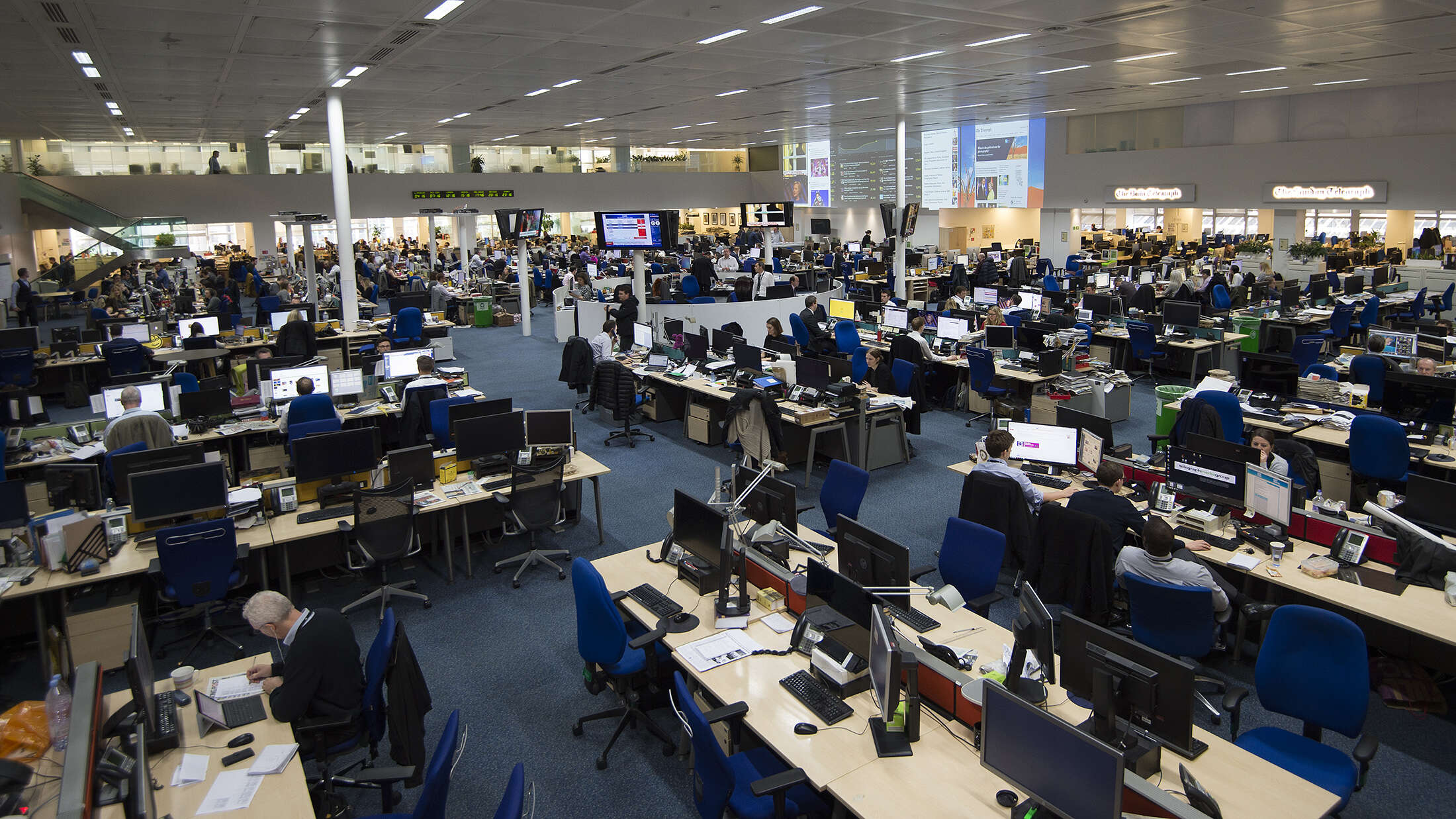
Watching the historic inauguration of new US Vice-President Kamala Harris on Wednesday should have felt more momentous than it did. Harris is not only the first woman, but the first person of colour to hold that office, carrying into it the hopes and dreams of black and South Asian people across the world who yearn for equality.
But on the same day as Harris’ inauguration, new unemployment figures expose race disparities in the UK. Coronavirus pandemic-fuelled job cuts have disproportionately affected black, Asian and other minority ethnic workers, who experienced a 5.3% drop in employment in the year to September. That is 26 times higher than the fall in employment among white workers, who dipped by 0.2% per cent.
These figures do not preclude journalism. It’s one of the reasons I’m asking journalists to support a campaign to #DiversifyTheNewsroom.
I’m just one of many journalists of colour, already woefully underrepresented in our newsrooms (black journalists represent 0.2% of our industry and Asians 2.5%, while white journalists make up 94%), who has felt the effects of corona-culling. I’ve experienced the difficulty of being an ethnic minority either looking for work or trying to sustain a career in an industry in which you are made to feel unwanted.
[Read more: Trump vs media: Four years of presidential press attacks charted]The racial prejudice in our newsrooms is compounded by classism (51% privately educated) that skews to the detriment of people of colour who, like me, are more likely to hail from working-class backgrounds. I grew up in the poorest borough in London, raised by Bangladeshi immigrant parents who struggled their way through raising five kids. A private education was never on the cards.
Industry marginalisation
Despite this double-disadvantage, I’ve managed to sustain a career in journalism over the past decade through hard work, determination, hustle and, yes, perhaps some talent. But I haven’t been immune to our industry’s marginalisation of people who aren’t white and middle class. Two years ago, the website I ran won specialist news site of the year at an industry awards. A year ago, I was a senior editor at a legacy US publication.
Now, after losing my job as the only editor of colour in the UK office of that publication last May, and despite my achievements and portfolio, suddenly I find myself sitting at home with little opportunity to step back into a newsroom. Yet it seems every week we hear about privileged white colleagues being poached for jobs without having to apply for more seniority and money.
I don’t have generational wealth or the bank of mum and dad to fall back on, so, unlike my middle-class peers, I can’t afford to sit at home and wait for something to come along. Doubtless, there are more journalists of colour from working-class backgrounds in a similar position to me, some of whom may have to leave the profession they love and have devoted their careers to in search of financial stability elsewhere. What a loss and an indictment on our business.
I’ve personally had to take on non-journalism work and, fortunately, I’ve enough news experience that my skill set is valuable to a part-time teaching post I’ve just begun. But, at just 32, it’s not exactly where I envisioned myself at this stage of my career. I had, and still have, much more to achieve.
These systemic race and class issues in journalism perpetuate a cycle that keeps certain people out. And, frankly, we’re all the poorer for it. I think of the talented young people of colour whose voices could be vital to the next generation of reporters, or the stories that we are missing by not proportionately representing the country (white journalists are overrepresented compared to the population and black and Asian journalists underrepresented, per the 2011 Census). If other industries, like book publishing, are committing to change in the wake of last year’s renewed Black Lives Matter efforts, why aren’t we?
Unravel the unconscious bias
As part of the campaign to #DiversifyTheNewsroom, an open letter to our industry asks the question: “If we as publications are the mirror through which the world sees itself reflected back, do we not have a responsibility to reflect the necessary systemic changes that are taking place outside our industry?”
The demands of change we have of the industry are robust. Yes, we seek to improve visibility, but hiring a junior reporter of colour isn’t enough. Newsrooms must thoughtfully address the challenges journalists of colour face, such as being paid less than white colleagues, being passed over for promotion and only being considered relevant to covering issues of race. We must practice an inclusive approach to all jobs, from top down, executive to intern, to ensure diversity of experience and thought that enhances our news coverage and perhaps slowly unravels the unconscious biases that perpetuate the racist cycle that persists now.
We also want publications to be transparent about the racial make-up of their newsrooms and any racial pay gaps that may exist, so they can hold themselves to account and so we can hold them to account—just as we hold others to account in our work every day.
I want to stress, too, that the fight for equality cannot just be undertaken by journalists of colour. Since starting this campaign, I’ve been disheartened by the silence of privileged white journalism colleagues. Equality is not oppression. White colleagues must be, and should want to be, allies. A fairer and more equal industry can only be good for democracy.
Please take the time to read and sign the letter, and amplify it by sharing it with your colleagues and peers in the industry.
As much as I’m loath to become the story, and writing about my own circumstances comes not without a sense of embarrassment, I hope we can rise together and work towards a better future for our industry. As Kamala Harris proves, it’s a new dawn, after all.
Image: Shutterstock/Fedorovekb
Email pged@pressgazette.co.uk to point out mistakes, provide story tips or send in a letter for publication on our "Letters Page" blog







